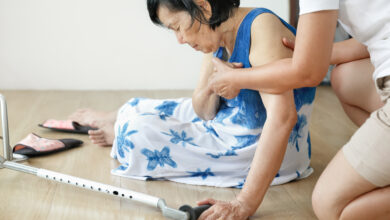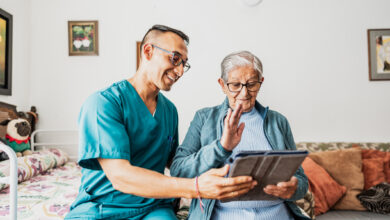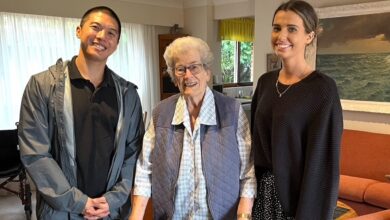Sim City

Mary Casey reveals the benefits of education in a simulated environment.
Simulated training is an educational concept that all nursing and allied health colleges should be offering students. Teaching multiple objectives in a ‘real life’ environment can grow confidence, encourage knowledge retention and be highly beneficial for the student, employer and patient.
It has been proven that the essential bases of adult learning theory is through experiential learning and I have witnessed this firsthand with our students.
I have also noticed a far higher level of knowledge retention when adults learn through experience, opposed to standard classroom education whereby they only get to listen and hear how it is.
Whether it is community or hospital based, simulated training is a combination of assessment and clinical decision-making through communication, hands-on, teamwork and management to care for the patient.
At Casey College, students are taught in a simulated environment, and for a portion of the lesson, learn what it’s like to be a patient. This method of simulation provides perspective on the patient’s needs.
When the student is immobilised by being in a wheelchair for a period of time, they quickly develop an understanding not only for the patient’s physical needs but also for their frustrations. It is at this point that students see the bigger picture and suddenly what they’ve learned in the classroom clicks into place.
When working in health, you’re responsible for the wellbeing of your patient and therefore confidence in your ability is a must. You’re required to feel at ease with the method and technique that you’re using and the patient must trust that you know exactly what you’re doing.
This confidence grows when students are exposed to ‘real life’ situations and this training positively impacts an individual’s skillset as well as boosts professionalism in their career as a nurse or allied health worker.
It’s true that we learn by our mistakes and in healthcare it is important that these mistakes happen before working with a patient.
Debriefing is an essential part of simulated training as this is where areas that require growth can be highlighted and praise on positive skill can be given. This training environment provides the benefit of consistent, constant and immediate feedback.
If the simulation is designed to offer feedback at various points throughout the timeline, participants can take the feedback, make corrections, and move forward.
Feedback can be personalised and in some cases the instructor may choose to film the student to show them directly what they need to be working on. In teamwork, students feed off the debriefing that other students receive and when an individual witnesses another making a mistake, they too learn from it. This also applies to when an individual does something well, they then lead by example and more often than not the others follow.
I have also witnessed students who may fly under the radar when it comes to the theory aspect of the course. These students may be mothers who have been out of work for over a decade and putting pen to paper is something that they have been out of practice with for a long time. Their life experience however makes them soar through the practical sections of the program by showcasing their life skill and understanding for a patient. Providing a balanced program allows students to shine in their strongest area.
A well-designed simulation can also be an enjoyable and exciting experience for both the participants and the instructor. When students are enjoying what they do, they retain more information and have a far better application of knowledge. Instructors also feed off the positive energy in the classroom and therefore provide a more upbeat and fun way of learning.
Progressing from education to the workplace is far less daunting when the student has worked hands on in the past. In addition to knowing how to perform tasks the new employee also has a sense of how long each task should take and the expectations that they have to meet.
A student who has graduated from a program with this form of training is far more likely to be picked up by an employer than someone with next to no experience with patients. These students will be able to approach patients straight out of college and the learning curve is less likely than someone who has not had hands on training.
While simulated training is talked about widely in the media today, it’s not something new. Learning through experience is a taught to us from the day we begin kindergarten therefore there is no logical reason why this too shouldn’t be part of our adult teaching programs. I encourage all education facilities to consider this option.
Dr Mary Casey is founder and CEO of the Casey Centre.
Email: [email protected]





